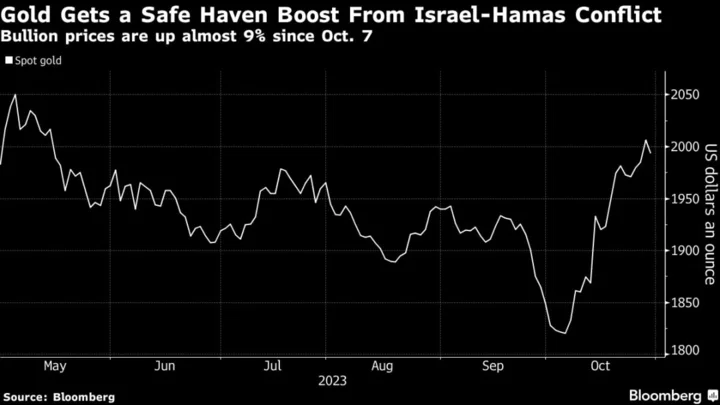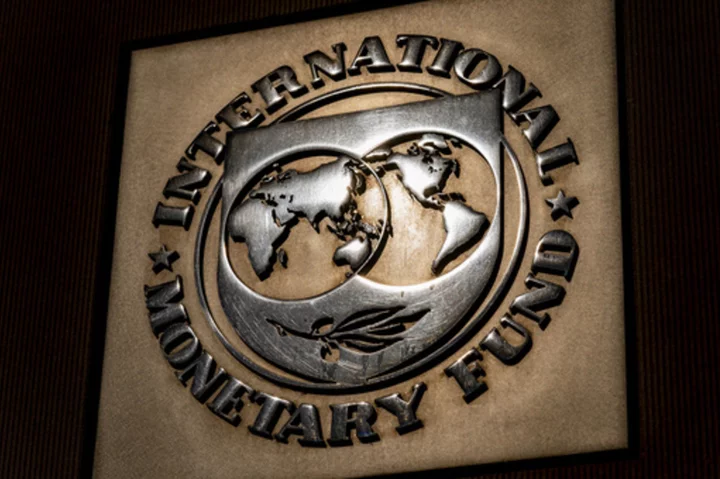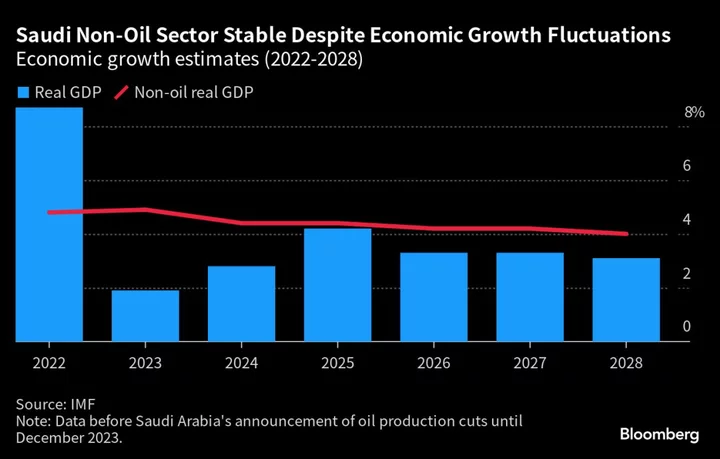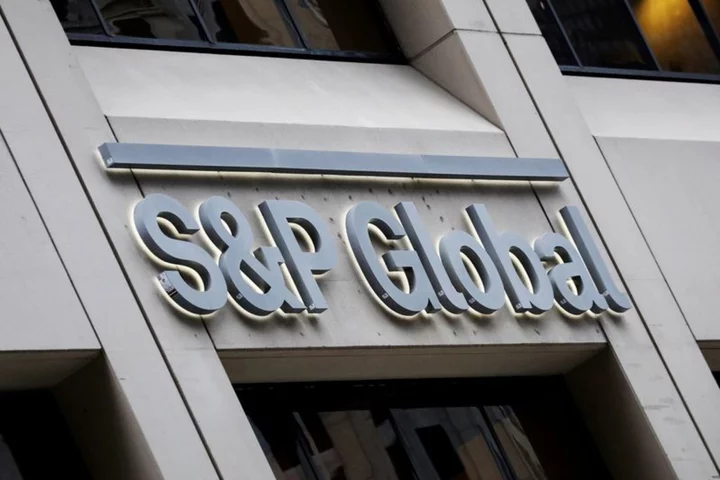The Bank of Thailand views gold as a relative safe haven in an era of high inflation and growing geopolitical risks, according to a central bank official, as the Southeast Asian nation seeks to safeguard its $210 billion of foreign reserves from market turbulence.
The Thai central bank has increased its gold holdings over the past three years as it diversified its investments, Deputy Governor Alisara Mahasandana said in an interview last week. She declined to give details of official gold purchases, but central bank data showed the value of bullion in its reserves has doubled since 2019.
Thai central bank’s affinity for gold is shared by monetary authorities in countries such as China, Poland and Turkey which have also added the precious metal to their stockpiles even as dollar continued to rally and interest rates soared. Gold has stood out as one of the biggest winners since Hamas attacked Israel on Oct. 7, surging about 9% as demand for haven assets increased.
For Thailand, diversifying its reserves has become even more imperative after its stockpiles — mostly held in foreign currencies, US Treasury and valued in dollars — tumbled about $47 billion since reaching a record $258 billion in December 2020. A 20% slump in the baht during the period and central bank efforts to cushion the currency’s decline have also eroded the reserves.
Bank of Thailand’s gold reserves were valued at $15.6 billion as of Oct. 20, up from $7.5 billion at the end of 2019, according to BOT data on its website.
“Asset allocation has become more challenging,” Alisara, who oversees the country’s reserves and a member of its rate-setting panel, said in an interview on Oct. 27. “We need to create a resilient portfolio against all shocks and changes around us. So, diversification is the key issue.”
BOT has focused more on asset-diversification to minimize the impact from post-pandemic higher-for-longer interest rates in major economies, soaring public debt, a Chinese slowdown and a raft of geopolitical tensions, Alisara said. Bonds of some of the countries previously perceived to be safe bets face uncertain outlook, adding to BOT’s challenges, she said.
Stress Tests
“Gold prices move in different direction to bond prices and prices of other assets that we can invest,” Alisara said. “It’s a hedging tool during high inflation and political uncertainty as well as geopolitical events. It’s good for risk diversification.”
Gold — often considered as a safe haven in times of low real interest and cheap dollars — has retained its appeal even with a rally in the fiat currency and the highest interest rates since the financial crisis. The precious metal, which is up 9% this year, is trading near its highest level since May.
BOT has tweaked its reserve management strategy over time to include assets from emerging markets, which have high risk-adjusted returns, according to Alisara. Still, the central bank follows its principles to preserve reserve values, liquidity and maximize risk-adjusted returns, she said, adding BOT has done “stress tests” and scenario analysis of its portfolio in line with global changes.
The Thai central bank has also started to incorporate environment, social and corporate governance principles into its long-term reserve management policies, Alisara said. The bank will assess whether the return from green assets is acceptable or not, she said.
Thailand’s foreign reserves rank the 11th largest in the world, a result of gradual building up following the Asian financial crisis in 1997–1998. The stockpile is 2.3 times the nation’s short-term foreign debt, well above above the global benchmark to cover the liability. As of Oct. 20, the reserves stood at $210.7 billion.









